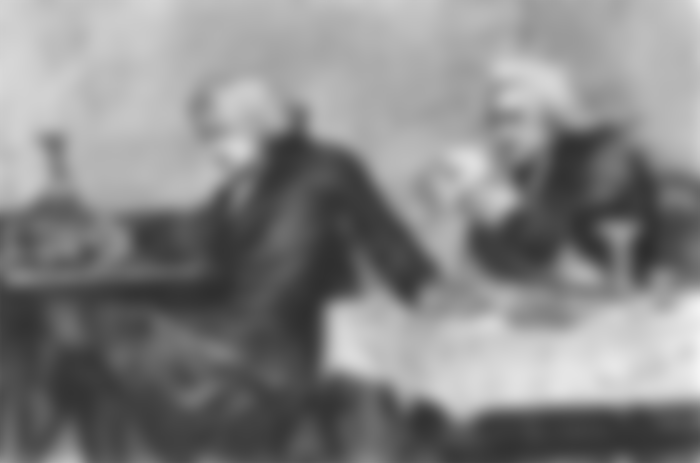Who hasn’t heard of Mozart? We all know that Mozart was a famous composer of the classical style, whose most famous pieces include the unfinished Requiem in D minor, known as Lacrimosa, and the operatic composition, The Magic Flute.
But did you know that Mozart met Marie Antoinette when he was really young? Or that his actual cause of death is unknown to this day? I certainly didn’t. This gifted, multi-talented musician, like other geniuses, lived an exciting, turbulent life. So join me as we take a trip through it!

Mozart was born on 27 January 1756 as Johannes Chrysostomus Wolfgangus Amadeus Mozart; thought he went by Wolfgang Amade or Wolfgang Gottlieb later on. I don’t blame him though; his full name must have been a mouthful to pronounce. He was born in Salzburg, the capital of the Holy Roman Empire. The Holy Roman Empire was a multi-ethnic complex of territories in Western and Central Europe, in today’s Austria.
His father, Leopold, was from a family of good standing and also published a violin playing manual, in the same year in which Mozart was born, with great success. His mother Anna Maria was from a middle-class family. The two of them had seven children, out of which only two, Mozart and his sister, Maria Anna, survived past infancy.
His father encouraged him to pursue his talent from an incredibly young age after, at three, the boy started picking out piano chords and, at five, began improvising minuets at the keyboard. Indeed, Leopold has sometimes been criticised for exploiting his son's prodigious talents for money and fame, much like today's stage mums, soccer dads or similar.
Leopold Mozart’s daughter Maria Anna (Marianne, nicknamed Nannerl), was an excellent harpsichord and fortepiano player. She was even paraded around with her younger brother as a musical prodigy in the early years. That was until (because she happened to be born a woman) she was no longer permitted to show off her artistic talents alongside her brother because she had reached the right age to be married off and it wasn't becoming of a woman to pursue a life in public.
Mozart, on the other hand, spent most of his childhood and teens, travelling around Europe first with his family, and then with his father, despite the travelling conditions being primitive and diseases being rampant. He also had the talent of absorbing the peculiarities of the composers he studied, resulting in his pieces having wide variety. In 1770, when he was still a teenager, Mozart was awarded the Papel Order Of The Golden Spur. His father made him sign his compositions with “Cavaliere Amadeo” for a while, but Mozart soon dropped the formality.
He worked at the Court of the Archbishop of Salzburg but eventually grew discontent by the meagre salary he received and the Archbishop’s dislike of operas, which he longed to compose.

Mozart resigned in 1777, then fell into debt, and began pawning off valuables. He eventually travelled to Vienna and settled there, establishing himself as the finest piano player in Vienna. He courted Constanze Weber, the third daughter of the owner of the lodge he was staying at. The two got married and had 6 children, of which only 2 survived infancy.
In his downtime, Mozart liked to indulge in billiards and bowls. Perhaps the rolling of the balls accompanied well the constant revolving of his musical mind. Indeed, history has him down as humming full Mozartian melodies throughout games and stopping to make brief notes on spontaneous ideas. Mozart favoured playing alone for those very reasons no doubt. The Mozarts lived a luxurious life during this period, as his compositions flourished. They also had a dog called Bimberl and among Wolfgang's many extravagant letter sign-offs is one from December 1774 in which he writes: "Farewell! A thousand kisses to Bimberl." This has me delighted with imagining Mozart bimbling around the streets with Bimberl (did you see what I did there?) and humming one of his cheerful melodies before popping into a cafe for a round of billiards.
However, towards 1786, his income began to shrink once again. This period was generally considered as a hard time for musicians in general because of the Austro-Turkish war. He began borrowing money from his friends and fell into depression too.
The last year of Mozart’s life was one of high productivity and supposed personal recovery. He composed many new pieces, and finances began to improve too. Unfortunately, he fell ill on 6th September 1791 and his health deteriorated until on 20th November, where he became bedridden. He composed Requiem in d minor, while on his deathbed, but was unable to finish it before he died.
Mozart’s exact cause of death is unknown. Antonio Salieri taught great composers—Beethoven, Hummel, Schubert, Liszt—and many others. But today Antonio Salieri is best remembered for something he probably didn’t do. He’s remembered for poisoning Mozart.
Peter Shaffer’s play and Milos Forman’s film ‘Amadeus’ treat the poisoning story metaphorically, suggesting that the mediocre, jealous Salieri conspired to break the childlike genius Mozart physically and emotionally. Yet the rumour that Salieri literally poisoned Mozart persisted in Salieri’s own time and long after.

The first reports of Mozart’s death speculated that he had been poisoned but did not mention Salieri, though as early as 1803 Carl Maria von Weber learned of the accusations when he visited Salieri. From then on, Weber—who was related to Mozart’s wife—avoided all contact with Salieri. In the summer of 1822 when Rossini visited Vienna, he discussed the rumours jokingly with Salieri. The next year, Salieri’s health took a turn for the worse, and with it, his reputation. Salieri suffered a physical and mental breakdown in the autumn of 1823, was admitted to the Vienna general hospital, and in a deranged state of mind, accused himself of having killed Mozart. Quickly rumours spread throughout Vienna. References to them appear in Beethoven’s conversation books of the time. This rumour, however, was not proven to be true, as the signs of illness Mozart displayed did not indicate poisoning.
Nevertheless, the world lost an amazing jewel too early. Mozart did not innovate. He mastered. He perfected existing forms and, in so doing, raised the symphony, sonata, and opera to new heights. His later compositions, especially, highlight his versatility and dexterity as a musician. And so, Mozart will surely be remembered as one of the greatest composers to have ever existed.


